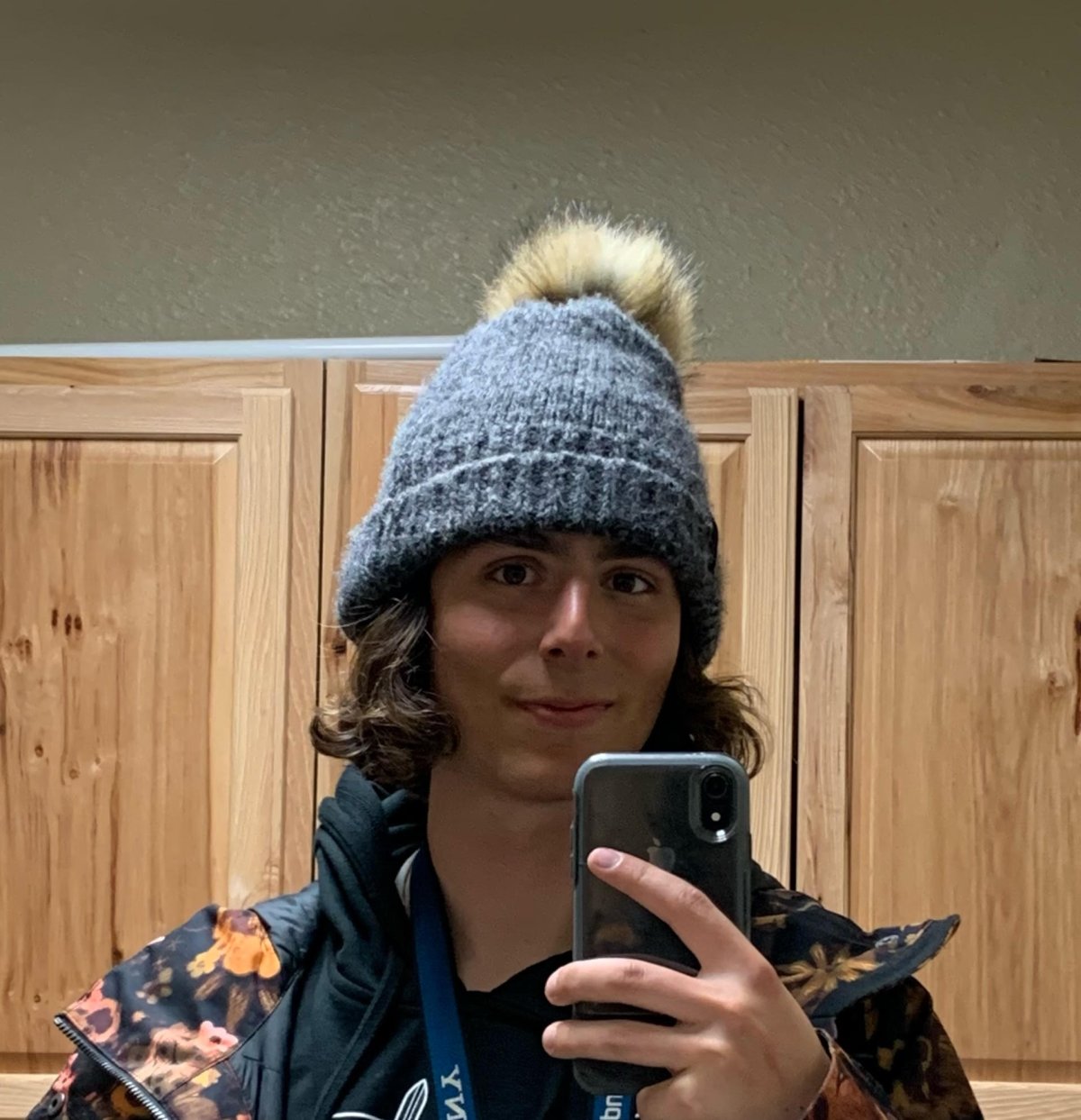CSpotlight: Turning Interests into Opportunities

Why did you choose to study computer science specifically at the University of Minnesota?
Both of my parents studied here, so I’ve been a Gopher fan most of my life. I had heard great things about the computer science program from my dad, who taught a few classes here for a while. Additionally, the official color of University gold (hex color code #FFCC33) has been a favorite of mine for quite a long time, so I didn’t have to change up my wardrobe too much.
How did you become interested in computer science?
Though I hate to admit it, my interest in the field can be traced back directly to my desire for playing video games during my middle school classes. My first deep dive into computers was in sixth grade, when I navigated through pages of a sketchy french forum on a quest to hack Super Mario Bros onto my TI-Nspire CAS calculator (I do not speak or read French, so it was quite the journey). A few years later, I took on a similar project, installing a custom OS on my school issued Chromebook so that it could run League of Legends. The low FPs, constant crashes, and trackpad did not do me any favors, but it still felt like a huge accomplishment.
Tell us more about your internship at Amazon. What kind of projects did you work on?
Last summer, I worked for the Search Services Department of Amazon Web Services (AWS). More specifically, I worked on a tool called OpenSearch, which I’m going to have to find an explanation by someone else to describe:
“OpenSearch is a distributed, open-source search and analytics suite used for a broad set of use cases like real-time application monitoring, log analytics, and website search.” (from https://aws.amazon.com/opensearch-service/the-elk-stack/what-is-opensearch/)
I worked on a plugin that mapped IP addresses to geolocations. For example, if your company was using OpenSearch to collect log data from machines across the country, you could use my plugin to notice if a certain region is having similar issues, or something like that. (Whenever I explained this to people, they heard “IP”, “location”, and “mapping” and thought I was up to some diabolical people tracking business. But no, it’s literally just machine diagnostics.)
What made you decide to become a software developer for the University Center for Writing? How did you enjoy the position?
A good friend of mine had held the position for a while, and recommended it to me. Working at the Center for Writing was a great experience, and certainly a different one than I’ve had anywhere else. Working on maintaining mostly student-written code has its quirks, but overall it’s been an amazing chance to really improve understanding, fixing, and writing code. I believe we’re going to be hiring somebody soon to fill the position, if anyone reading this is interested!
How did you earn the position at Modern Logic? What kind of work do you do as their software engineer?
I started working at Modern Logic in high school, I offered to be an unpaid intern for a couple of weeks during the summer of my junior year. I came back the next summer and they were able to pay me, and I stuck around for a few more years after that. I got to work on a few cool mobile apps (a FitBit that stops you from biting your nails, Robinhood but for crop prices, and a dating app), and met directly with the clients, to discuss their needs and requirements. I was doing mostly front-end user interface stuff. It’s a very cool company, they’ll make any mobile apps you can dream of. (If you have an idea for a million dollar app, please ask them to make it, not me! Visit the Modern Logic website.)
What advice do you have for incoming computer science students?
First, look for small projects that interest you and seem doable, and then do them. Me and some of my friends play a card game (Magic the Gathering) and we have a group chat where we talk about the game. I was tired of googling card names, and cluttering up my camera roll every time I wanted to send a card to the chat. I spent a few days writing a bot that would remove this hassle, and learned a ton about application programming interfaces (APIs), asynchronous requests, Javascript, etc., in the process. And I was having fun the whole time, because it was something I was excited about. Sometimes, you get lost in your classes and forget how cool and useful the stuff you are learning really can be. Take a break from reversing that linked list and go flex on your friends.
Second, I’ll share something that really helped alleviate my imposter syndrome. When you start an internship or job with a company, the amount of things you don’t understand will be enormous. You might feel embarrassed about how little things make sense, and scared of someone finding out you know nothing. Here’s the thing: With entry level positions, you weren’t hired because of what you know; you were most likely hired because you proved that you can learn. Computer science classes are tough, and even if the material is not exactly what you’re being asked to do in a job, each class you pass proves you are capable of picking up new skills, which will always be relevant.
What are your plans after graduation?
In August, I’m starting a job at AWS with the same team I worked with during my internship. Before then, I plan to do some rambling around Europe with my brother. I might visit my buddy in Fargo and do some rock climbing with him.